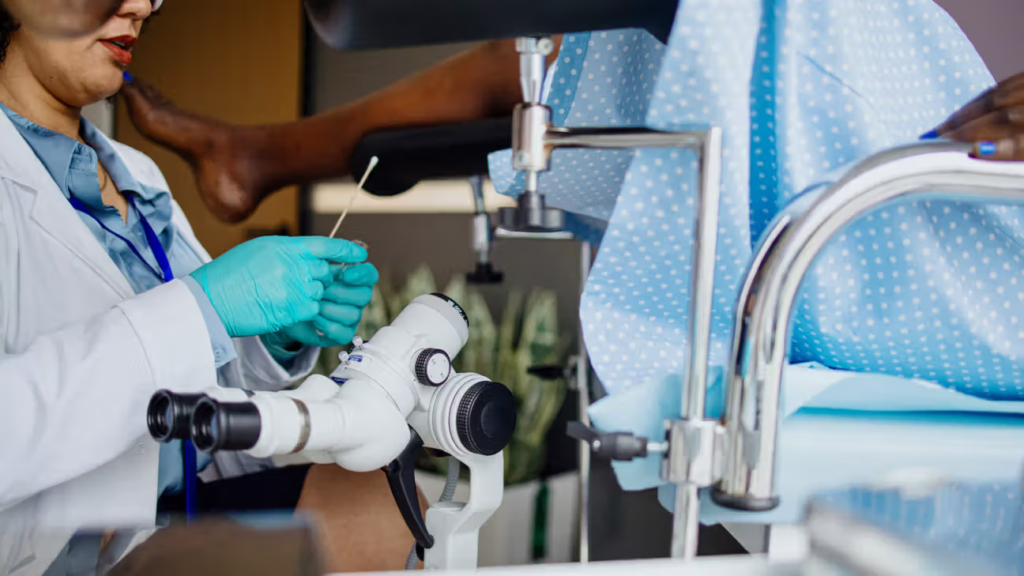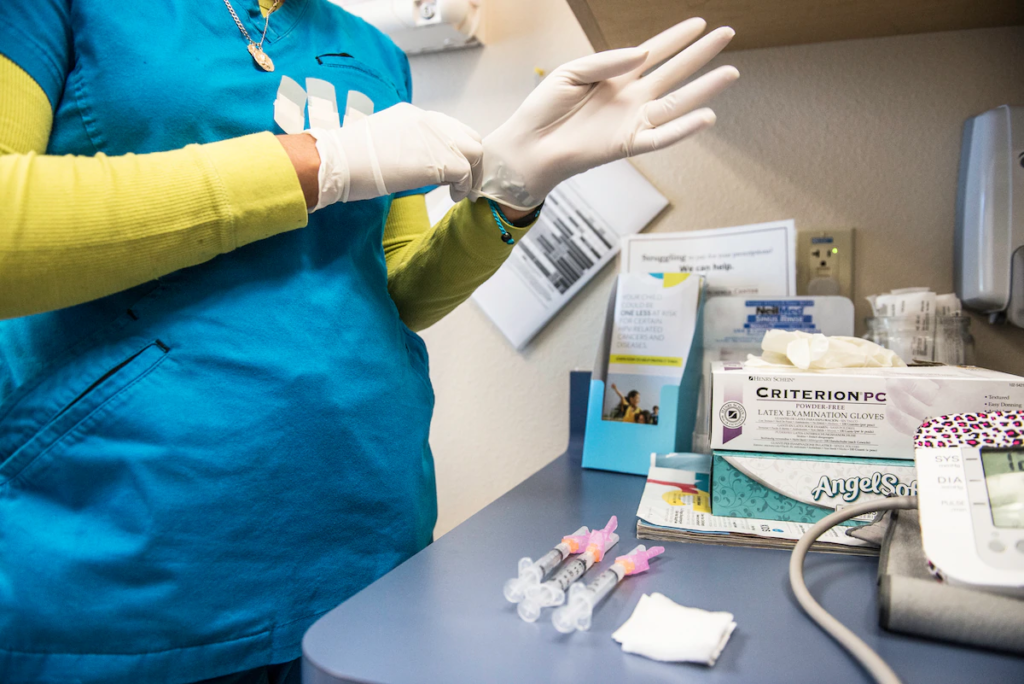In a groundbreaking move for women’s health, the U.S. Food and Drug Administration (FDA) has approved the Teal Wand, the first-ever at-home self-collection device for cervical cancer screening. Announced on May 9, 2025, by Teal Health, a women’s health company, this approval marks a significant step toward making cervical cancer screening more accessible, private, and convenient. The Teal Wand allows women to collect vaginal samples at home to test for human papillomavirus (HPV), the virus responsible for nearly all cases of cervical cancer. This innovation aims to increase early detection rates, potentially saving thousands of lives by identifying precancerous conditions before they develop into more serious diseases.

A Game-Changer for Cervical Cancer Screening
Cervical cancer remains a critical public health concern, with approximately 13,000 new cases diagnosed annually in the United States, leading to over 4,000 deaths each year. Despite being largely preventable through regular screening and HPV vaccination, about one in four women in the U.S. is not up to date on recommended cervical cancer screenings, according to the American Cancer Society. Barriers such as discomfort with traditional Pap smears, lack of access to healthcare providers, and logistical challenges like childcare or time off work have contributed to this gap. The Teal Wand addresses these issues by offering a less invasive, at-home alternative that empowers women to take control of their health.
The Teal Wand is a prescription-only device designed for women aged 25 to 65 at average risk for cervical cancer. Users collect a vaginal sample at home using the wand and mail it to a certified laboratory for HPV testing. The process is straightforward, private, and designed to be user-friendly, with virtual access to medical providers who review the results with patients. Clinical trials involving over 600 women demonstrated that the Teal Wand has a 96% accuracy rate in detecting cervical precancer, comparable to clinician-collected samples. Additionally, 94% of participants preferred the at-home method over traditional in-clinic screenings, citing comfort and convenience.
Kara Egan, CEO and co-founder of Teal Health, emphasized the significance of this development: “As a mom and a woman, I understand how easy it is to put your own health last. This FDA approval is about giving women an option that fits their lives—something that can be done quickly and comfortably at home.” The approval follows a U.S.-based study that confirmed the device’s effectiveness, paving the way for its designation as a “breakthrough device” by the FDA last year, which expedited the review process.

Why Early Detection Matters
Cervical cancer is one of the most preventable cancers when detected early. Regular screening can identify precancerous changes in the cervix, allowing for interventions that prevent the disease from progressing. The American Cancer Society recommends that women begin cervical cancer screening at age 21 and continue every three to five years, depending on the test used and individual risk factors. However, many women avoid screenings due to the discomfort of a Pap smear, which involves a speculum exam, or because of limited access to healthcare, particularly in rural or underserved areas.
Dr. Ami Vaidya, co-chief of gynecologic oncology at Hackensack University Medical Center’s John Theurer Cancer Center, highlighted the potential impact of the Teal Wand: “This device could be an important tool in getting more women regularly screened, especially those who don’t have access to a medical provider. Any test that helps detect cervical cancer is a win.” The device’s approval is particularly significant for addressing disparities in cervical cancer outcomes, as studies show that under-screened populations, such as those in rural or low-income communities, face higher risks of late-stage diagnoses.
The Teal Wand’s launch aligns with global efforts to improve cervical cancer screening rates. The World Health Organization (WHO) recommends screening 70% of women at least twice in their lifetime, at ages 35 and 45, to reduce the global burden of the disease. In the U.S., where screening rates lag for about 21 million women, the Teal Wand could help bridge this gap by offering a convenient and less intimidating option.
How the Teal Wand Works
The Teal Wand is designed to be simple and intuitive. After obtaining a prescription, women receive the kit, which includes the collection device and clear instructions. The user collects a vaginal sample in the privacy of their home, places it in a provided container, and ships it to a certified lab for HPV testing. The lab processes the sample using the same HPV tests employed in clinical settings, ensuring equivalent accuracy. If the test detects HPV, which is linked to cervical cancer, the patient is referred for follow-up care, such as a traditional Pap smear or a colposcopy, a procedure that examines the cervix more closely.
The device’s 96% accuracy rate is a key factor in its FDA approval. A clinical trial found that the Teal Wand correctly identified 95% of HPV-positive samples compared to clinician-collected methods. Furthermore, 86% of study participants said they would be more likely to follow screening recommendations if they could use an at-home option. This preference for self-collection highlights the device’s potential to increase compliance with screening guidelines, ultimately reducing cervical cancer incidence and mortality.
Addressing Accessibility and Cost Concerns
Teal Health is working to make the Teal Wand widely available, with plans to begin shipping the device in June 2025, starting in California and expanding nationwide. The company is also in discussions with insurance providers to classify the test as a preventive screening, which could make it eligible for coverage without a copay under many plans. However, the exact price and insurance eligibility are still being determined, raising questions about affordability for some users.

While the Teal Wand offers a promising alternative to in-clinic screenings, experts caution that it does not replace comprehensive gynecological exams. Dr. Christine Greves, an obstetrician-gynecologist, noted that in-person exams can detect issues like cervical polyps, which carry an increased cancer risk but may not be identified through HPV testing alone. “This does not take the place of a regular visit, but it’s great that there are efforts to improve the ability to screen for cervical cancer,” she said.
A Step Toward Health Equity
The approval of the Teal Wand comes at a time when health equity is a growing focus in medical innovation. Cervical cancer disproportionately affects women in low-income and underserved communities, where access to regular healthcare is limited. By enabling at-home screening, the Teal Wand could help reach women who have never been screened or who face barriers to accessing traditional medical care. Dr. Smita Joshi, a senior scientist at Prayas Health Group, underscored the global significance of such advancements: “Worldwide, two out of three women have never been screened in their lifetime. Self-sampling can help reach the never-screened or hard-to-reach population.”
The device also builds on lessons learned during the COVID-19 pandemic, which demonstrated that telehealth and at-home testing are viable and preferred options for many Americans. Teal Health’s mission to integrate telehealth into cervical cancer screening aligns with this trend, offering virtual consultations to review results and guide next steps. This approach not only enhances convenience but also reduces the stigma and anxiety associated with in-person gynecological exams.
Looking Ahead
The FDA’s approval of the Teal Wand is a milestone in women’s healthcare, offering a new tool to combat cervical cancer through early detection. As Teal Health prepares to roll out the device, the focus will be on ensuring accessibility, affordability, and integration with existing healthcare systems. The company’s efforts to secure insurance coverage and expand distribution could determine the device’s reach and impact.
For women across the United States, the Teal Wand represents more than just a medical device—it’s a step toward empowerment, privacy, and control over their health. By making screening more accessible, this innovation has the potential to save lives and reduce the burden of cervical cancer, particularly for those who have been underserved by traditional healthcare systems. As Dr. William Dahut, chief scientific officer at the American Cancer Society, stated, “Most cervical cancers are found in people who have never had a screening test or who have not had one recently. This approval will make a huge impact.”
Must Read :- Aaron Rodgers Reaches Historic Milestone: Ninth NFL Quarterback to Surpass 60,000 Passing Yards






